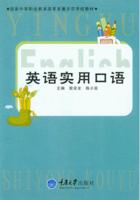Ms Partan refers to America,s number 18 position in the ,Educational Disadvantage League, in the UNICEF report. I was prepared to be shocked. The gap between the best and the worst public schools, or between the average and the lowest educational attainment of pupils, was greater in America than in any OECD country except Germany (!), Denmark (!) and, less remarkably, Spain, Italy, Greece and Portugal. Wealthy, suburbanandsmalltown and ultrahomogeneous Finland shines in slot 3, while wealthy, suburbanandsmalltown but far less homogeneous Denmark occupies slot 20. Canada and Australia rank 4th and 5th, the US 18th.
No doubt the rankings bear some relation to classroom realities, but I wonder if it is reasonable to go too deeply into lamentation mode. Finland and Denmark are culturally very similar countries, but one clear difference between them lies in the size and origin of their immigrant populations. Finland has very few immigrants. In contrast, Copenhagen, the Danish capital, has substantial neighborhoods of poorly integrated recent Muslim immigrants and many schools where little Danish is heard on the playground. In this respect Denmark resembles Germany.
Might the presence of large numbers of immigrants not explain some of the performance problems in American schools? And not just any immigrants: the children of poor illeducated families from societies like Mexico, where few peasants escape poverty through the village school. Canada and Australia are also wealthy Englishspeaking nations with sizable immigrant populations, but their governments carefully dole out visas on the basis of wouldbe immigrants, education and professional background; in other words, these nations absorb foreigners fully aware of the economic value of education, having already used it to better their lives. (How many disruptive middleclass Chinese and IndoCanadians pupils are there in Canadian schools?) When boatloads of much more ordinary Asians approach the shores of Australia, on the other hand, they are received coolly. For better or worse, official US immigration policy is not geared towards this sort of social selection, and whatever the policy may be, the country cannot control the illegal influx over its southern border.
For historical reasons, this problem does not keep me awake at night. America has been flooded with illiterate Irish, Italian and Slavic peasants in the past, yet in three generations the newcomers were almost wholly absorbed into the American middle class. Given half a chance, the new peasant arrivals from Mexico and farther south will follow the same broad pattern: problems in the first generation, adjustment in the second, advancement in the third.
What particularly troubles me about Ms Partan,s article is the statement that “we need to stop blaming poverty, parents or the home environment for the difficulty a child has in learning.” Poverty, I agree, is not directly to blame for such difficulties, but parents and the home environment, on the other hand, are crucial factors. Those immigrant parents who recognize at least the economic value of education will be the first to see that their kids cooperate with schoolteachers. If parents take school seriously, by and large children will too, especially in the early years when literacy skills are being mastered - and they will thrive even in rundown school buildings. Taking school seriously may mean that a parent forgoes some employment opportunities for a while to make sure that children are doing something constructive after school: homework, reading and supervised play, not watching garbage on TV or hanging out in the street. The worst impact of poverty is in making it harder for immigrant parents to assume this role.
Ms Partan seems to attribute the success of children in school above all to good teachers armed with an effective methodology. I am second to none in my praise of the dedicated pedagogue, but the record of teachers in rescuing children from families where what kids do in school is of no interest to the parents - or parent - is not, in my view, encouraging. Most often at least one of the parents has to be reached in order to guarantee that children make progress in school. Where children respect a parent and know that he or she demands good behavior in school, even mediocre or loutish teachers can pull off the trick of producing modestly literate and numerate children. Which is not to wish bad teachers on children, but merely to suggest where the key to success lies in most cases: with the parent who makes sure the child does its homework.
为美国教育沟壑说句话
几天前我曾读过一个专栏上美国专家道丽丝·帕坦的文章。她基于不久前联合国儿童基金会对经济合作与发展组织(OECD)24个国家教育质量不合格状况进行比较后得出的结果,悲叹美国公立学校教育质量的现状之差。她对美国郊区学校(通常教育质量高)与城里学校(通常教育质量低)所做的公正分析给我留下了深刻印象,但对文中的某些论断我必须提出反对意见。
帕坦女士提到美国在联合国儿童基金会报告中的“教育缺陷排列”表中名列十八,于是我做好心理准备来看令人震惊的信息。尖子校与撮底校之间的差距,或者是平均水平与最差生之间的差距,除了德国(!)丹麦(!)和不太引人注意的西班牙、意大利、希腊、葡萄牙之外,美国的教育“沟壑”比OECD的其他国家都大。多数人住在郊区并以小城镇为主以及种族极为单一的富裕的芬兰荣居第三,而同样富裕的丹麦,多数人也住在郊区也以小城镇为主,但远不是单一种族,其却名落二十。加拿大与澳大利亚位居第四和第五,美国是第十八。
毫无疑问,这一排序与学校实际状况有一定关系。但我想,对此而深感痛惜是否有道理?芬兰与丹麦是文化上很类似的国家,但是,十分明确的一点区别在于他们的移民人口的数量与来源显着不同。芬兰的移民极少,相比之下,在丹麦首都哥本哈根存在着还没有真正融入丹麦社会的人数可观的穆斯林新移民区,很多学校的操场上只有很少的丹麦孩子。在这方面丹麦与德国一样。
大量移民人口的存在不能解释美国学校中的一些问题吗?当然,并非是每一个移民都不重视教育,可比如说像来自墨西哥那样的国家的没有受过良好教育的穷人家的孩子,在墨西哥几乎没有哪户农民能够通过乡村学校摆脱贫穷。加拿大与澳大利亚也是富裕的英语国家,也有着数量可观的移民,但这两国政府在发放签证上极为谨慎,他们考虑的基本点是即将成为移民的人的文化水平和专业背景,换句话说,他们所吸纳的外国人都充分意识到了教育在谋生中的作用,并且已经通过受教育而提高了他们的生活水平(在加拿大学校里有几个中产阶级的中国人或印度人的孩子会调皮捣蛋?)。而另一方面,当极为一般的亚洲人乘船到了澳大利亚的海岸时,他们受到的则是冷遇。然而,不管是好是坏,反正美国官方的移民政策不与这类社会选择挂钩,而且,不管政策如何,美国控制不住从她南部边界涌入的大量非法移民。
出于历史原因,这些问题并不让我夜不能寐。过去,没有文化的爱尔兰、意大利和斯拉夫农民都涌入过美国,但过了三代之后,这些新来者几乎全都进入到了美国的中产阶级。如果条件相似,从墨西哥或是更南部地区来的新农民也将沿袭同样的模式——第一代问题很多,第二代能适应,第三代得到发展。















